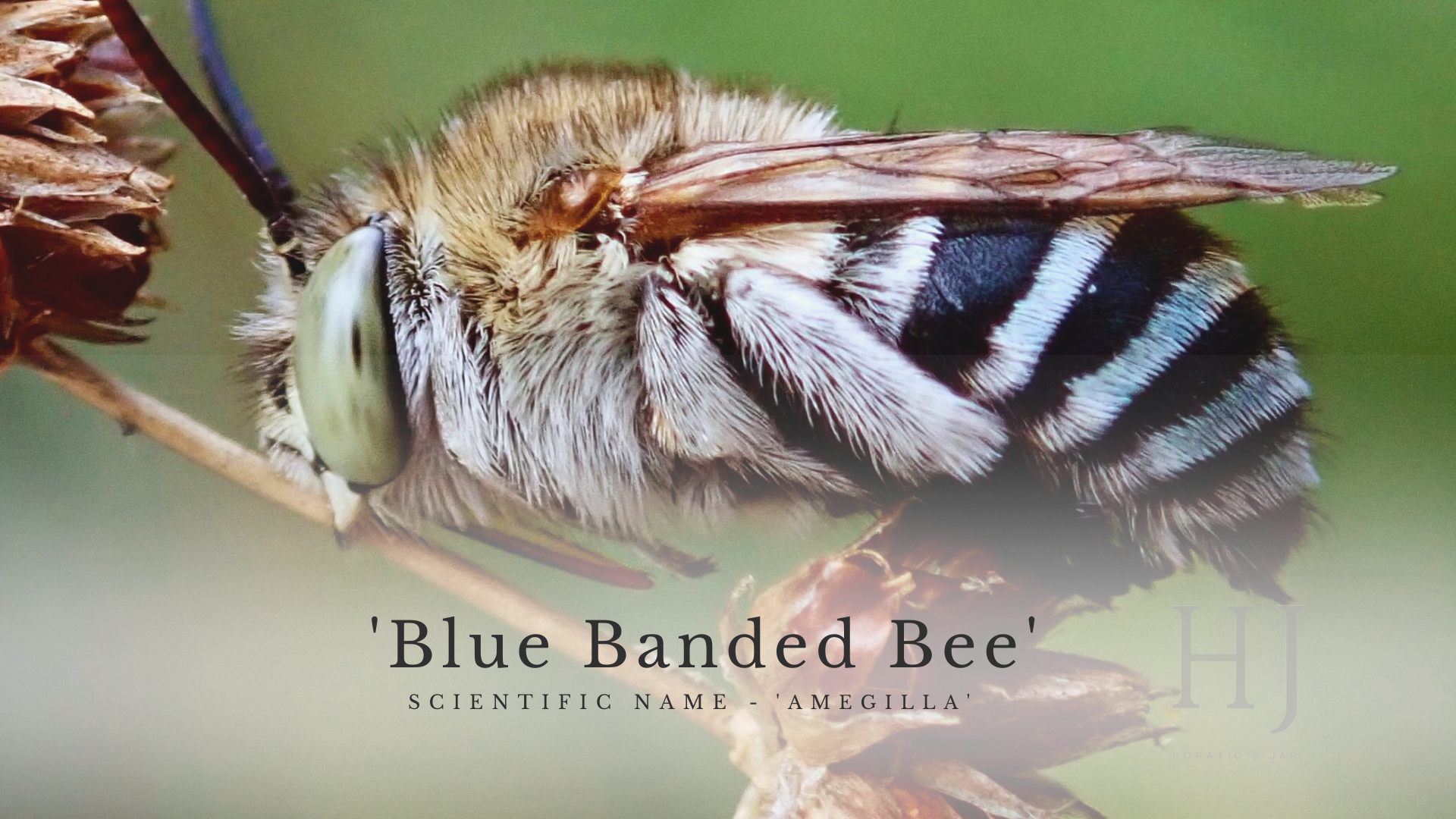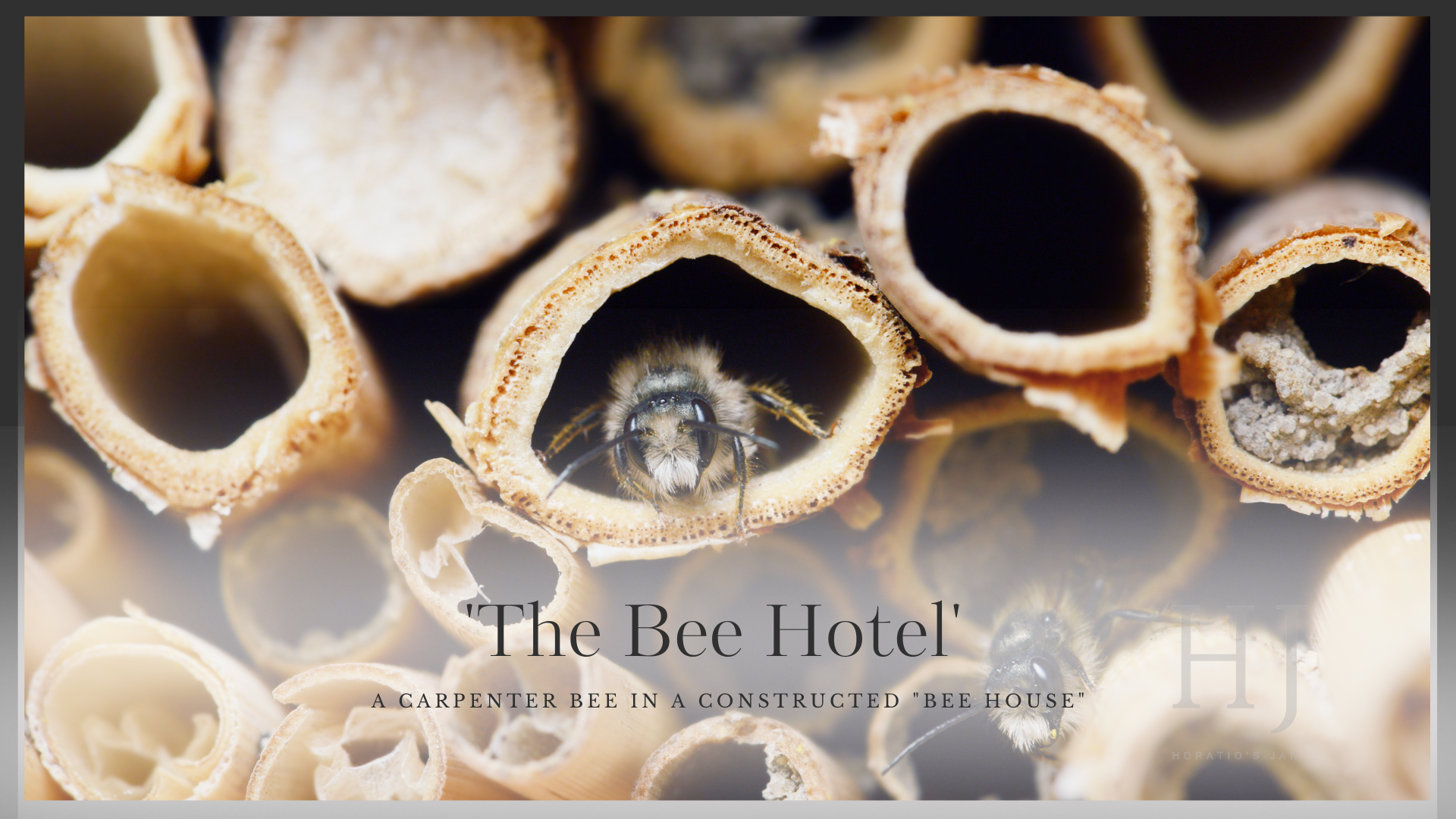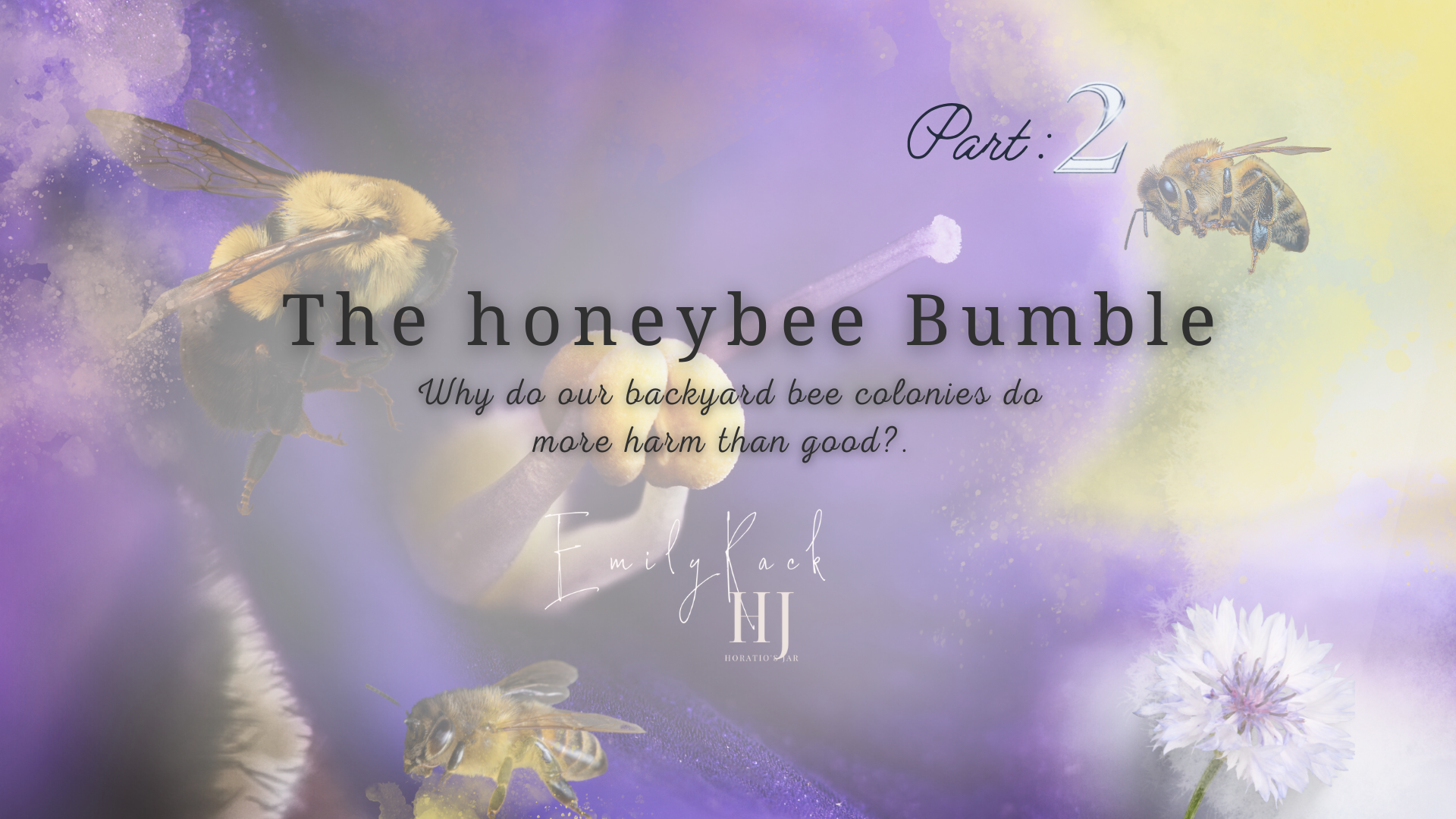Published by: Digital Schools
The Honeybee Bumble – Part 2
When we think of bees and food, we rarely think of all the other lives at risk of extinction in the bee goes bust.
We are misguided with our attention on saving the honeybee to save ourselves – the honeybee is not the answer to saving the planet. The honeybee is contributing to ecological collapse, global warming, and the death of thousands of native pollinators in Australia and across the world.

It’s Not the Bees fault.
There are more than twenty thousand bee species, and only seven are from the honeybee family. The number one choice for commercial beekeepers is the European honeybee; unlike the other ninety per cent of bees that live solitary lives in hollows of old logs, in burrows or sometimes wrapped in leaves, they live in hives. Bees that make hives and live in colonies swarm, they also can turn feral, which they have in Australia, and the impact is ecological devastation.
It is not the bees’ fault; it is ours – we have built an unsustainable system that is now failing us all.We need a complete overhaul of agriculture worldwide, the cessation of pesticide use, and the moderation of our desire to have everything we want all the time.

A bee hotel is a constructed home where native bees can take residence.
Usually made of hollow bamboo or holes at random drilled into an old log, the tunnels are perfect for our native species that do not build hives.

Bee the solution.
To be a part of the solution, we need to grow native flowering plants at home, buy native honey, make homes for native species, and eliminate your backyard hives; they invade native ecosystems. Consider growing your plant foods at home as farmers did before mass agriculture.
Another way to support native bees in our community is by installing a ‘bee hotel’ (see the image).

Guest Contributor: Emily Rack
Business Name: Horatio’s Jar
Publisher: Digital Schools
Emily Rack is a freelance creative writer and researcher, visual content creator, and designer. She is the head of the content production, publication – and editing for Upschool+ Guest Contributors -, and Horatio’s Jar is her content production agency and wellbeing school.
Emily has dedicated her life to researching and understanding matters of the mind, body-, and the human experience. Her discoveries and research are focused on cultivating tools and dialogue that encourage us to live in peace and harmony here on earth.
Her current focus is the environment and human connectivity, conservation, environmentalism, botany, biology-, and the practice of ‘Nature Bathing’. Emily is a writer, digital content creator, seasoned photographer-, and visual artist.
——-
PUBLISHER’S DISCLAIMER: The publisher of this blog post (Digital Schools PTY LTD) works in partnership with the school as a 3rd party provider to help build and maintain the school website. Digital Schools sources a range of experts who provide products and/or services to educational institutions and we work with them to produce and publish topical information in the form of blog posts that we think may be relevant, interesting or topical to families within the community. The views, opinions and content listed in this blog post are that of the guest contributor and/or publisher (Digital Schools). It should be noted that whilst the publisher and guest contributors are acting with the best intentions and in the best interests of the school and their community to provide helpful or interesting information, sometimes the content may not necessarily reflect the views of the school.
The information in this blog post is not meant to be used, nor should it be used, to diagnose or treat any medical condition. For diagnosis or treatment of any medical problem, consult your own physician. The school and the publisher of this blog post are not responsible for any person reading or following the information in this article who may experience adverse effects.
Any references to external websites or sources are provided for informational purposes only and do not constitute an endorsement by the school or publisher in any way and the publisher and/or school cannot guarantee the accuracy of the information listed.
If you have feedback on any content on this platform, you can submit it to the publisher using the feedback link provided at the bottom of this page.


